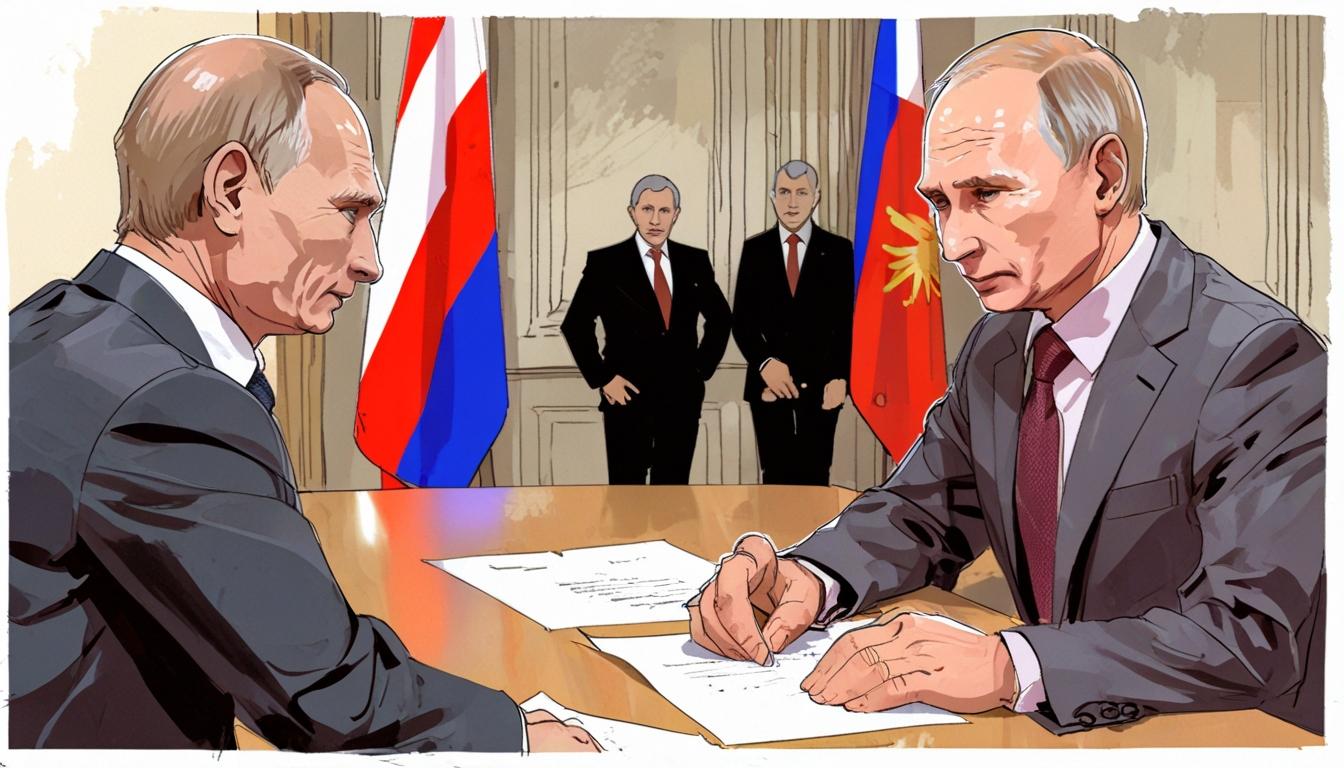Donald Trump has retracted a key campaign promise to end the Ukraine war within a day of becoming US President, clarifying that the statement was made 'in jest' and as an exaggeration to emphasise a point. This admission comes amid ongoing efforts to negotiate a ceasefire, highlighted by a meeting in Moscow between Russian President Vladimir Putin and Trump’s special envoy, Steve Witkoff.
Witkoff arrived in Moscow for his fourth meeting with Putin, where the two men engaged in three hours of talks. The envoy greeted Putin warmly, saying it was 'so good to see you' before discussions commenced. Despite the cordial atmosphere, no immediate breakthrough was achieved, with the Kremlin describing the meeting as 'constructive' but offering limited details. Putin’s aide, Yuri Ushakov, stated that the talks helped bring the parties' positions closer on Ukrainian and other international issues.
Trump’s remarks, published in an interview with Time magazine, provided a significant shift from his earlier stance. He explained, 'I said that figuratively, and I said that as an exaggeration, because to make a point. Obviously, people know that when I said that, it was said in jest, but it was also said that it will be ended.' He also expressed frustration about the length of the negotiation process, noting, 'Well, I don't think it's long. I mean, look, I got here three months ago. This war has been going on for three years. It's a war that would have never happened if I was president. It's Biden's war. It's not my war.'
In addition, Trump reiterated controversial views attributing responsibility for the invasion to Ukraine’s desire to join NATO, suggesting this 'caused the war to start.' He claimed, 'If that weren't brought up, there would have been a much better chance that it wouldn't have started.' He also reiterated his stance that 'Crimea will stay with Russia.'
Amid these developments, Ukrainian President Volodymyr Zelensky visited Kyiv’s site of a recent Russian missile strike that killed at least 12 civilians, one of the deadliest attacks on the capital in months. Zelensky laid flowers at the scene alongside representatives from over 50 diplomatic missions. He praised emergency responders, saying, 'This is a real service – the protection of Ukrainian life.'
Responding directly to Trump’s comments on territory, Zelensky reaffirmed Ukraine’s position that only its people have the right to decide national borders. He said, 'The constitution of Ukraine says that all the temporarily occupied territories… belong to Ukraine, to the Ukrainian people.' Zelensky expressed willingness to discuss territorial issues only after achieving 'a full and unconditional ceasefire.' Acknowledging current military realities, he agreed with Trump that Ukraine presently lacks sufficient weapons to regain control over Crimea.
The US President indicated progress was being made toward a potential ceasefire but cautioned there was 'no deadline' and characterised the negotiations as 'fragile.' Washington aims to secure a deal to mark Trump’s first 100 days in office on 30 April, while Putin is under pressure to demonstrate military strength in time for the 80th anniversary of the Soviet victory in World War Two on 9 May.
Reflecting shifts in international policy, NATO’s 2024 secretary general’s report notably omits any assertion that Ukraine will join the alliance in the future, in contrast to the previous year’s report which left membership as under consideration.
Meanwhile, British and European parliamentarians have issued a joint statement urging against any US policy perceived as appeasement toward Russia. The statement, signed by officials including Labour MP Emily Thornberry and foreign affairs chairs from Ukraine, France, the Czech Republic, and the Baltic states, firmly rejected proposals recognising Moscow’s control of Crimea. It declared, 'There can be no compromise and no external pressure on Ukraine regarding its sovereignty and territorial integrity.'
The evolving diplomatic landscape underscores the complexities faced in attempting to resolve the conflict in Ukraine, as major powers navigate competing political and military agendas.
Source: Noah Wire Services
